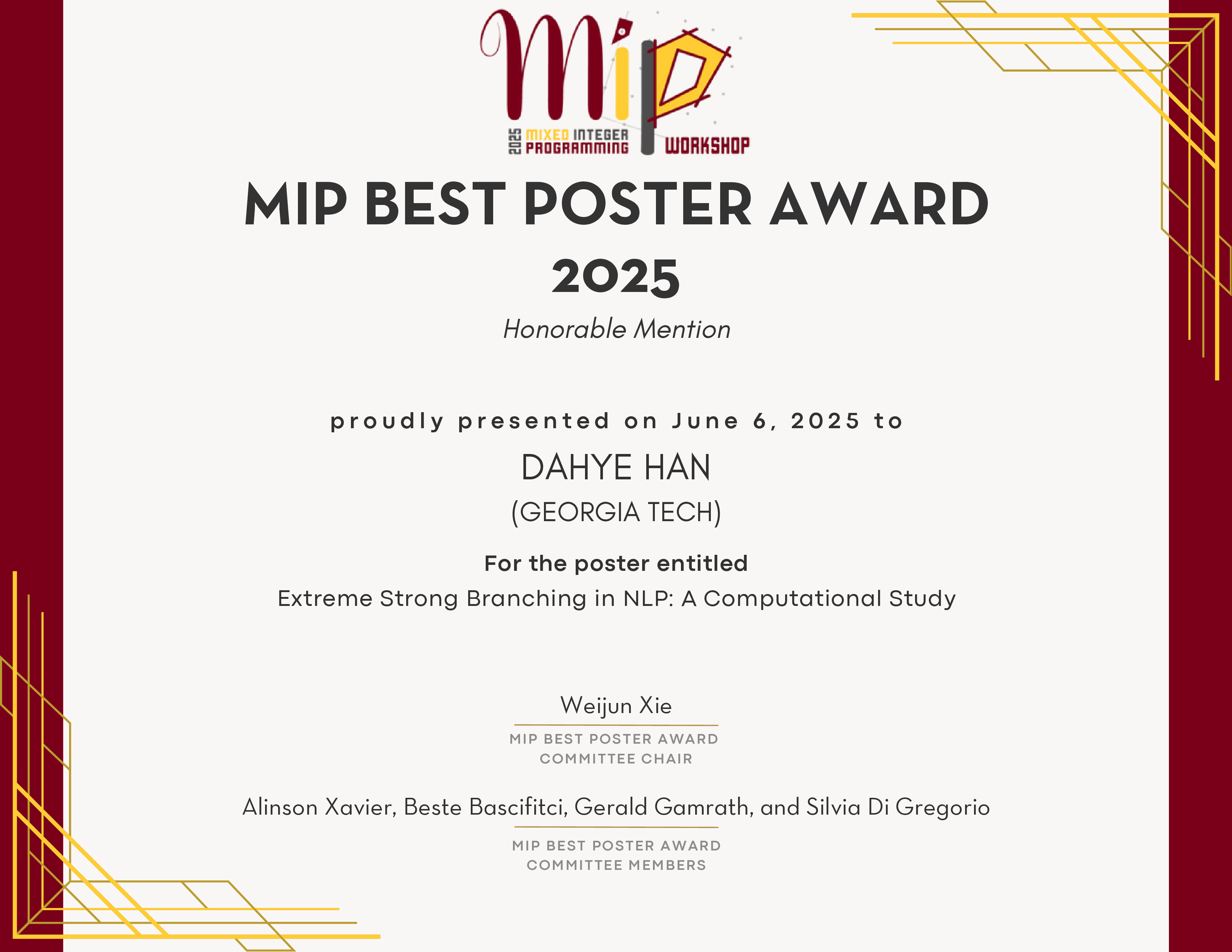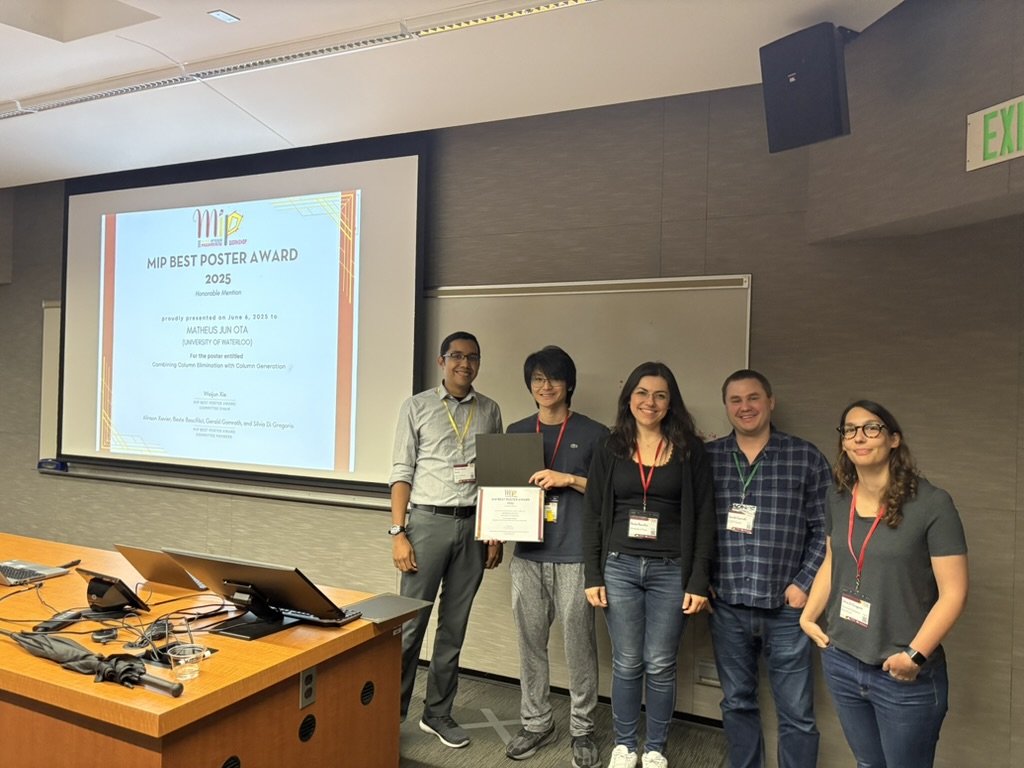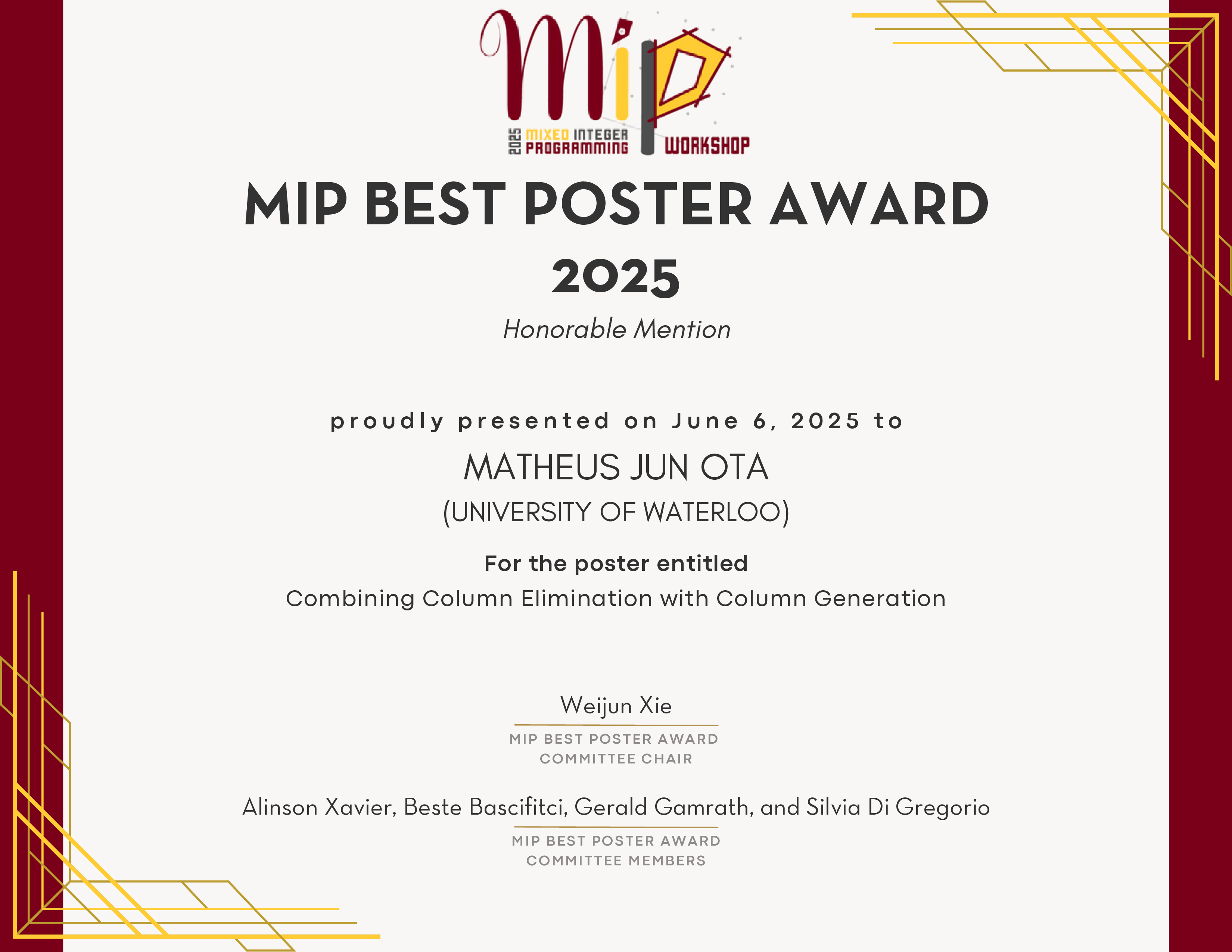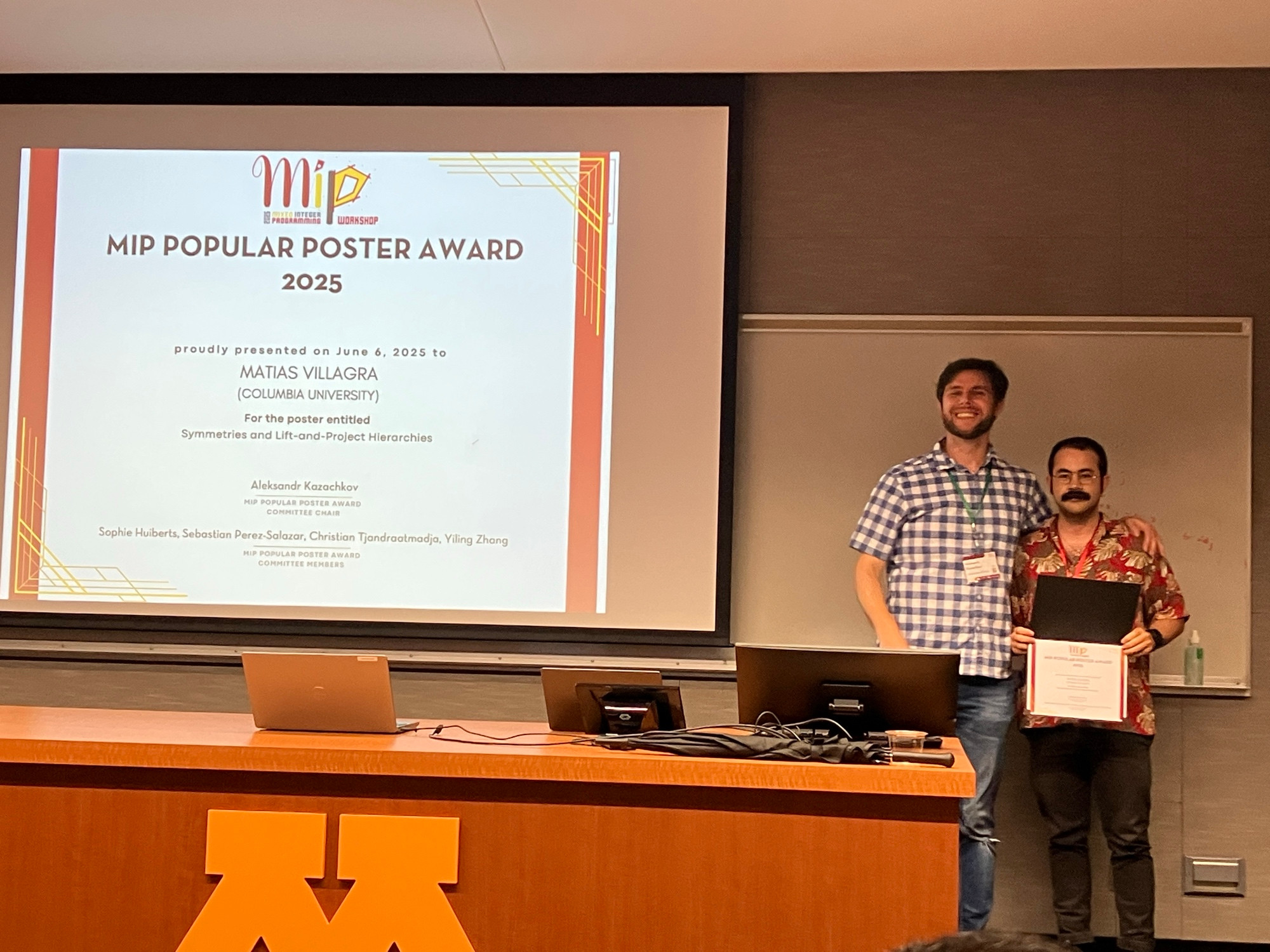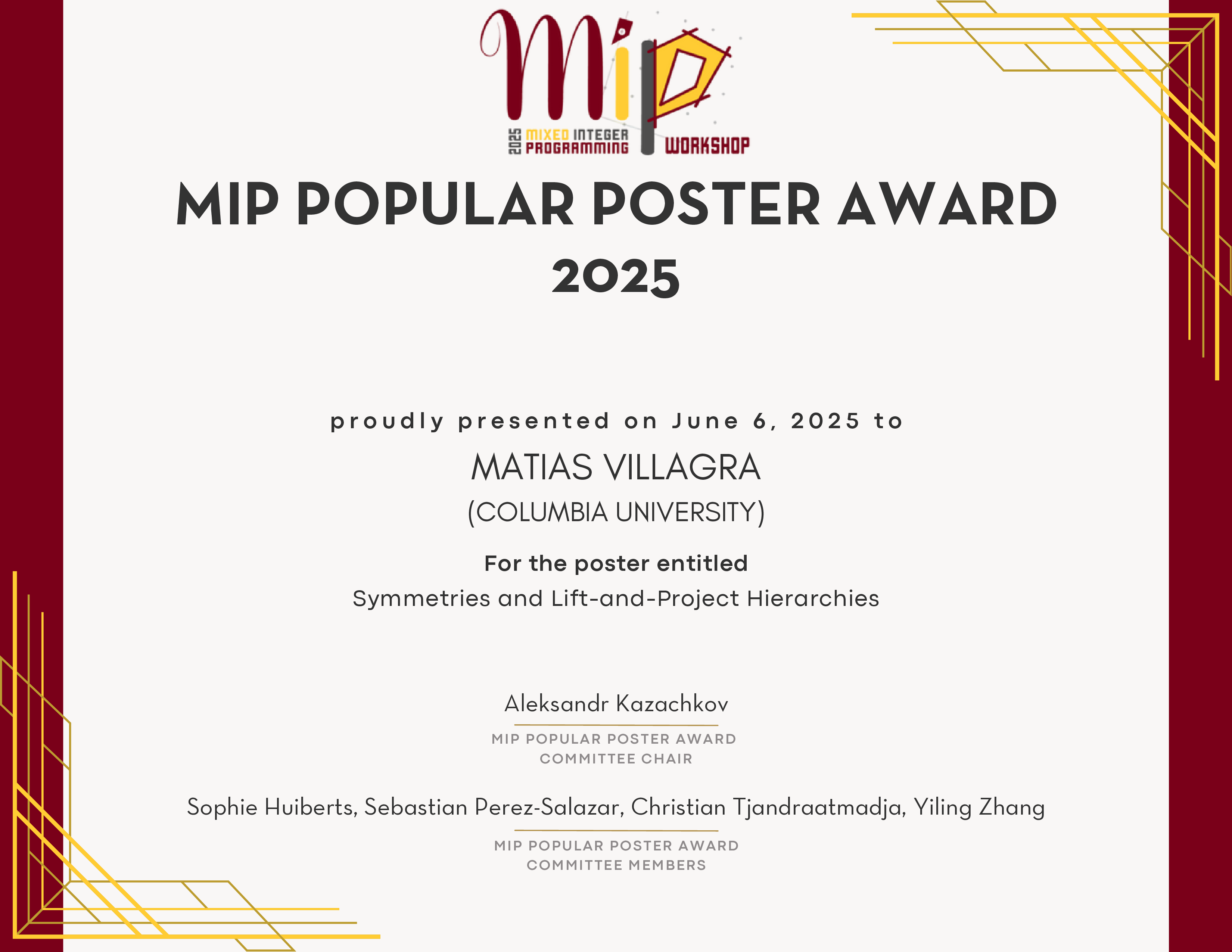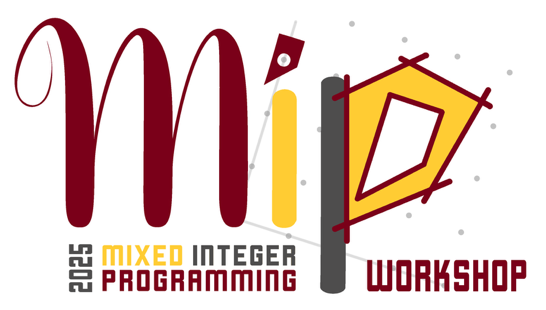| Anna Deza |
University of California, Berkeley |
Fair and Accurate Regression: Strong Formulations and Algorithms |
| Anurag Ramesh |
Purdue University |
Quadratic Knapsack Problem : A QUBO-Based Approach |
| Berkay Becu |
Georgia Institute of Technology |
A Simple Heuristic to Learn Primal Solutions for AC Optimal Transmission Switching Using Historical Data |
| Bo Tang |
University of Toronto |
Learning to Optimize for Mixed-Integer Nonlinear Programming |
| Boyang Han |
University of Florida |
An Extended Abstract Branch-and-Cut Model to Compare Parameterized Cutting and Branching Behavior |
| Can Yin |
University of Minnesota, Twin Cities |
Mobile Parcel Locker Scheduling with Customer Choices under Uncertain Demand |
| Connor Johnston |
University of Florida |
Simple Disjunctive Cuts Are All You Need! |
| Dahye Han |
Georgia Institute of Technology |
Extreme Strong Branching in NLP: A Computational Study |
| Dekun Zhou |
University of Wisconsin-Madison |
Efficient Sparse PCA via Block-Diagonalization |
| Domingo Araya |
Pontificia Universidad Católica de Chile |
Exact and approximate formulations for the Close-Enough TSP |
| Haoyun Deng |
Georgia Institute of Technology |
On the ReLU Lagrangian Cuts for Stochastic Mixed Integer Programming |
| Jingye Xu |
Georgia Institute of Technology |
V-Lagrangian decomposition solves random two-stage integer problems in poly-iteration |
| Jnana Sai Jagana |
University of Minnesota, Twin Cities |
A column-and-constraint generation algorithm for robust optimization under flexible uncertainty |
| Johanna Skåntorp |
KTH Royal institute of technology |
Exploring Alternative Cutting Planes for Mixed-Integer Semidefinite Programming |
| Joshua T. Grassel |
North Carolina State University |
Stress Testing the Numerical Stability of LP and MIP Solvers |
| Kausthubh Konuru |
University of Florida |
Generalizing Learning to Cut Models from Synthetic to Diverse Instances |
| Lillian Makhoul |
University of Colorado Denver |
Finishing a chapter: computing the volume of the convex hull of the graph of a trilinear monomial over a general box domain |
| Lingqing Shen |
Carnegie Mellon University |
Scaling Relaxations with Efficient Algorithm for the Constrained Maximum-Entropy Sampling Problem |
| Matheus Jun Ota |
University of Waterloo |
Combining Column Elimination with Column Generation |
| Matias Villagra |
Columbia University |
Symmetries and Lift-and-Project Hierarchies |
| Shannon Kelley |
Lehigh University |
Strengthening Parametric Disjunctive Cuts |
| Shivi Dixit |
University of Minnesota, Twin Cities |
Learning parametric valid inequalities for mixed-integer linear optimization |
| Stefan Clarke |
Princeton University |
Learning-Based Hierarchical Approach for Fast Mixed-Integer Optimization |
| Tu Anh-Nguyen |
Rice University |
Learning Generalized Linear Programming Value Functions |
| Waquar Kaleem |
Pennsylvania State University |
Extreme-Scale EV Charging Infrastructure Planning for Last-Mile Delivery Using High-Performance Parallel Computing |
| Woojin Kim |
University of Wisconsin-Madison |
The Chance-constrained Stochastic Diversion Path Problem with Sample Average Approximation |
| Yongzheng Dai |
Ohio State University |
Modified Eigenvalue Method for Nonconvex MIQCQP and Parallel Local Branching |
| Yutian He |
University of Iowa |
Distributionally Fair Two-stage Stochastic Programming by Bilevel Optimization |
| Zulal Isler-Ardic |
Rensselaer Polytechnic Institute |
New optimization approaches for designing experiments |
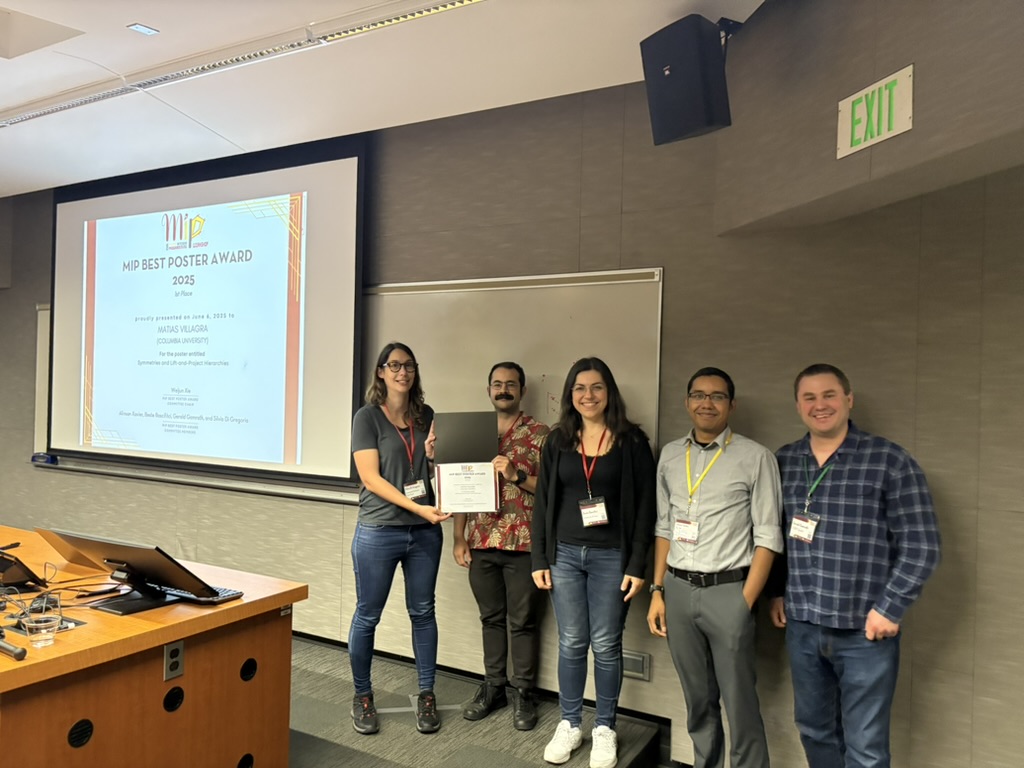
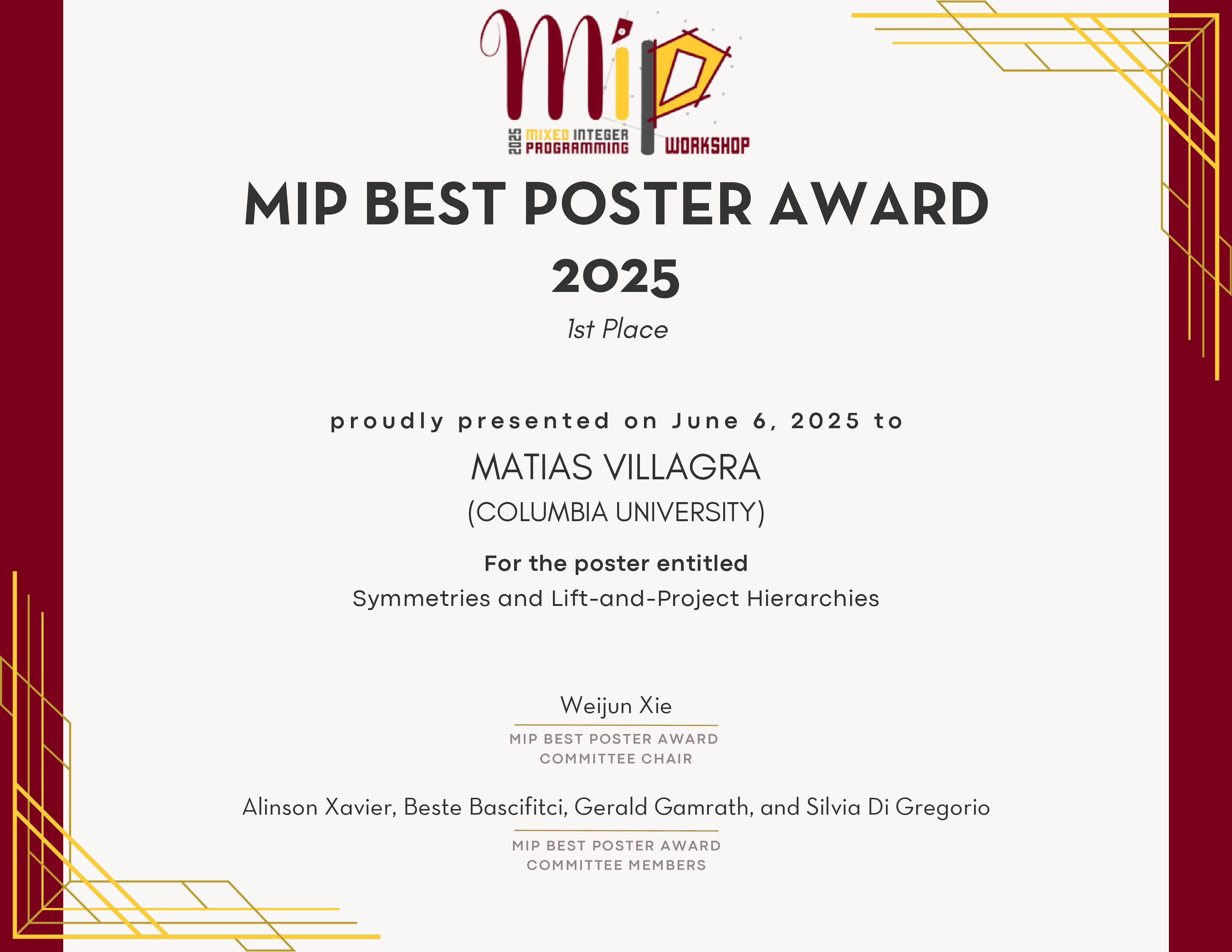
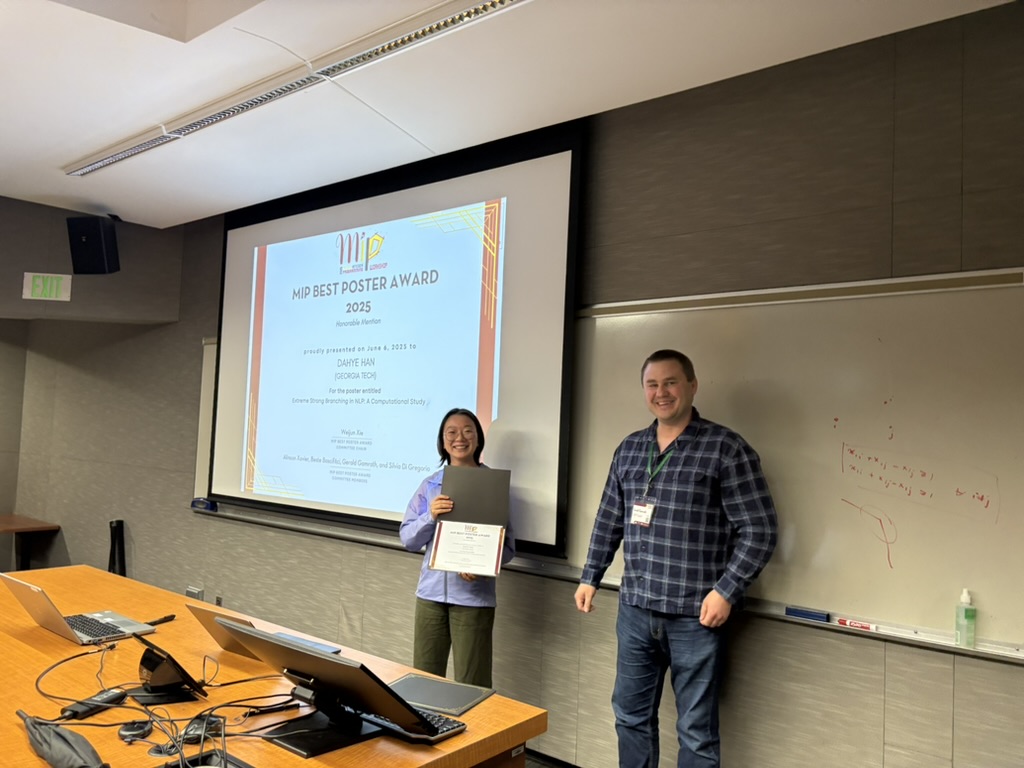 The award has been received by a representative for Dahye on Dahye's behalf.
The award has been received by a representative for Dahye on Dahye's behalf.
